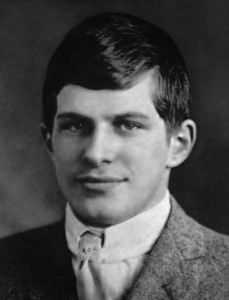Intelligence is a fascinating, though complex subject, and it’s one that is difficult to study for that reason. Researchers have developed IQ tests to try and create some kind of objective, quantitative measure of human intelligence. Despite their many flaws, IQ tests present a clear quantitative bell curve with 95% of their participants scoring within a range of 70 to 130.
There are a couple different classifications of IQ scores. One common classification is Wechsler’s, which ranks 90-109 as the true average. 120-129 is High, and 130 and over is “Gifted.” 80-89 is Low Average, 70-79 is “Borderline,” and below 69 is “Extremely Low.” The Stanford-Binet Scale of Human Intelligence rates those with scores 145 and above as Genius.
So who has the highest IQ ever recorded? Unfortunately it is a little difficult to actually answer this question with a specific name, though there are several contenders for the highest IQ in the world. The reason it is tough to give a really firm answer to this question is that the test really was designed with the regular population in mind. Individuals who rank as extreme outliers are all so far removed from the normal population that a separate test would really need to be developed to sort these people according to their own gifts.
Nonetheless the following geniuses have been widely credited as having the highest IQs ever.
- William Sidis, USA, 250-300 (estimated)
- hris Langan, USA, 243
- Paul Johns, UK, 240
- Rolf Mifflin, USA, 238
- Andreas Gunnarsson, Sweden, 235
- Thomas R. A. Wolf, Germany 235
- Evangelos G. Katsioulis, Greece, 235
- Scott Durgin, USA, 235
- Marilyn vos Savant, USA, 228
Marilyn vos Savant

Marilyn vos Savant (Photo credit: marilynvossavant.com)
She’s at the bottom of the list above, but she’s still one of the most famous contenders. In fact, she’s probably more famous than the guy who actually appears to win the high IQ contest. Marilyn vos Savant was born in St. Louis, MO in 1946, and works as a magazine columnist, author, lecturer, and playwright. Her main claim to fame was her entry (in 1985) into the Guinness Book of World Records as the highest IQ. She studied philosophy in school, despite her parents’ objections that it was a useless topic. She briefly delved into the family investment business before deciding to pursue her passion for writing. Guinness itself no longer maintains a record for IQ holders, since as of 1990 they determined that indeed the measurement could not really determine a “winner.”
She is well known for her solutions to a couple of different logic problems. The most well known is the Monty Hall problem. In short, you are at a game show, and you are shown three doors and told to pick one. One of the doors hides a car, while two hide goats. The host opens one of the other doors, revealing a goat. Then he asks if you want to stick with the door you chose or switch to the other. Savant argued that switching ups the odds of winning the car. In response, she received thousands of letters arguing it makes no difference.
Savant’s logic goes as follows. The role of the host is important and often overlooked. The initial choice presented gives the contestant a 1/3 chance of picking a car and a 2/3 chance of picking a goat. If a contestant picks a goat door, the host, who knows this, is forced to open the particular other door which hides a goat, and not the one that hides the car. If the player chooses the car door initially, switching the bet will result in a loss, but this can only happen 1/3 of the time. This means that contestants who switch must have a 2/3 chance of winning the car (if you are like me, you can run this around in your brain for the rest of the day; if you are like Savant and understand it straight away, congratulations).
William James Sidis

William James Sidis' Harvard graduation photo
William James Sidis comes closest to achieving the highest IQ ever recorded, even though technically his IQ was undeterminable. Born in New York City in 1898, he was a child prodigy. He could read a newspaper at 18 months, and apparently knew eight languages by the age of eight, and invented his own language to top it off. He was a well-known war draft protestor during WWI, and nearly went to prison for it. Instead, he ended up spending a year in a sanatorium, as arranged by his parents.
When Sidis was tested for an IQ score, he was apparently off the charts—literally. After his death, Abraham Sperling, director of New York City’s Aptitude Testing Institute, stated that he “easily had an IQ between 250 and 300.” IQ tests worked a bit differently in those days. That translated to saying that his intellectual age was 2.5-3 times his actual age. The veracity of the claim has been debated (as has its meaning) in the years since his death. So while he has quite a legacy and he was certainly brilliant, it is again hard to quantify his intelligence.
Criticisms of IQ as a Measure of Intelligence
Critics of IQ tests point out that they are not only nebulous, but also dismissive of other types of intelligence. People with high intellectual capacity for math and language may fail in other areas, such as emotional intelligence. It also isn’t uncommon for a very smart person to fail utterly at common sense.
There is also the matter of commitment; the test looks for speed, whereas true brilliance often is the work of a lifetime. And then there are very brilliant people who do not even have IQs that are sky high. Stephen Hawking’s IQ is reportedly around 160. Genius level, certainly, but way below 200. His Mensa score is much higher, but it just goes to show, there are many aspects of genius that are immeasurable.